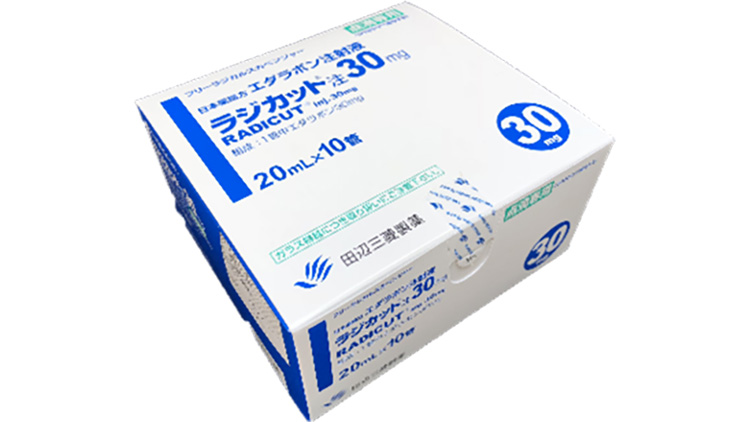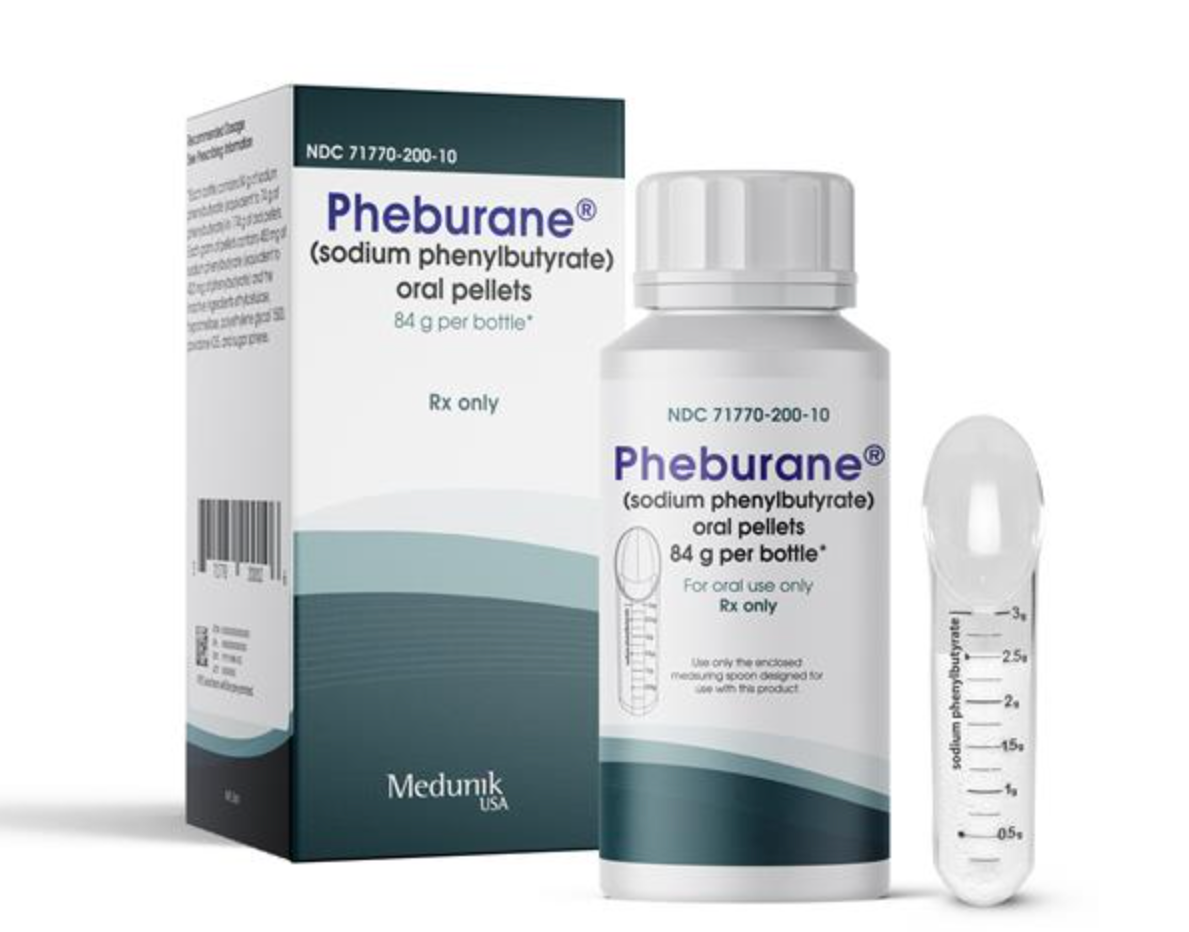Radicut (edaravone) vs Pheburane (sodium phenylbutyrate)
Radicut (edaravone) vs Pheburane (sodium phenylbutyrate)
Radicut (edaravone) and Pheburane (sodium phenylbutyrate) are medications used for different medical conditions; thus, their comparison is based on their respective indications and mechanisms of action. Radicut is an antioxidant used to slow the progression of amyotrophic lateral sclerosis (ALS), a neurodegenerative disorder, while Pheburane is a medication used to manage urea cycle disorders, which are genetic conditions that affect the body's ability to remove ammonia from the bloodstream. Patients should consult their healthcare provider to determine which medication is appropriate for their specific condition, as the choice of medication would depend on the diagnosis, the severity of the condition, and the individual patient's medical history.
Difference between Radicut and Pheburane
| Metric | Radicut (edaravone) | Pheburane (sodium phenylbutyrate) |
|---|---|---|
| Generic name | Edaravone | Sodium phenylbutyrate |
| Indications | Amyotrophic lateral sclerosis (ALS) | Urea cycle disorders |
| Mechanism of action | Free radical scavenger | Ammonia detoxification by alternative pathway |
| Brand names | Radicut, Radicava | Pheburane, Buphenyl |
| Administrative route | Intravenous | Oral |
| Side effects | Headache, gait disturbance, bruising | Body odor, headache, nausea, rash |
| Contraindications | Hypersensitivity to edaravone or excipients | Hypersensitivity to sodium phenylbutyrate or excipients, severe hepatic impairment |
| Drug class | Neuroprotective agent | Ammonia scavenger |
| Manufacturer | Mitsubishi Tanabe Pharma | Horizon Pharma |
Efficacy
Efficacy of Radicut (Edaravone) in Amyotrophic Lateral Sclerosis (ALS)
Radicut, also known as edaravone, is a medication that has been approved for the treatment of Amyotrophic Lateral Sclerosis (ALS), a progressive neurodegenerative disease that affects nerve cells in the brain and the spinal cord. The efficacy of Radicut in ALS was demonstrated in a six-month clinical trial involving patients with ALS. The trial showed that patients who received edaravone experienced a reduced decline in physical function compared to those who received a placebo, as measured by the ALS Functional Rating Scale-Revised (ALSFRS-R), a standardized rating instrument for monitoring the progression of disability in ALS patients.
Edaravone is believed to work by relieving oxidative stress, which is thought to be one of the factors contributing to the neuronal cell damage seen in ALS. By scavenging free radicals, edaravone may help to protect motor neurons and slow down the progression of the disease. However, it is important to note that while Radicut may slow the progression of ALS, it is not a cure for the disease, and its effects may vary from patient to patient.
Efficacy of Pheburane (Sodium Phenylbutyrate) in Amyotrophic Lateral Sclerosis (ALS)
Pheburane, known generically as sodium phenylbutyrate, is a drug that has been used for the treatment of urea cycle disorders. Its efficacy in Amyotrophic Lateral Sclerosis (ALS) has been explored due to its potential neuroprotective properties. Sodium phenylbutyrate is thought to reduce neuronal stress and inflammation, which are factors implicated in the pathogenesis of ALS. However, it is important to clarify that Pheburane is not approved for the treatment of ALS, and its use in this context would be considered off-label.
Current evidence regarding the efficacy of sodium phenylbutyrate in ALS is limited, with research still ongoing. Some studies have suggested that when used in combination with other drugs, such as tauroursodeoxycholic acid, sodium phenylbutyrate may have a synergistic effect that could potentially slow the progression of ALS. Nevertheless, more extensive clinical trials are required to establish the efficacy and safety of Pheburane for the treatment of ALS. Until such data are available, the use of sodium phenylbutyrate in ALS remains experimental and should be approached with caution.
Regulatory Agency Approvals
Radicut
-
Food and Drug Administration (FDA), USA

-
Health Canada

-
Pharmaceuticals and Medical Devices Agency (PMDA), Japan

Pheburane
-
European Medical Agency (EMA), European Union

-
Food and Drug Administration (FDA), USA

Access Radicut or Pheburane today
If Radicut or Pheburane are not approved or available in your country (e.g. due to supply issues), you can access them via Everyone.org.
How it works

Make an enquiry
Choose the medicine you want to buy, answer a couple of questions, and upload your prescription to speed things up. We’ll get back to you within 24 hours.


Make an enquiry
Choose the medicine you want to buy, answer a couple of questions, and upload your prescription to speed things up. We’ll get back to you within 24 hours.


Breeze through the paperwork
We'll guide you through the required documents for importing unapproved medicine, ensuring you have all the necessary information.


Get a personalized quote
We’ll prepare a quote for you, including medicine costs and any shipping, administrative, or import fees that may apply.


Receive your medicine
Accept the quote and we’ll handle the rest - sourcing and safely delivering your medicine.

Some text on this page has been automatically generated. Speak to your physician before you start a new treatment or medication.
Let's talk
If you have any questions, call us or send us a message through WhatsApp or email:
Contact us




